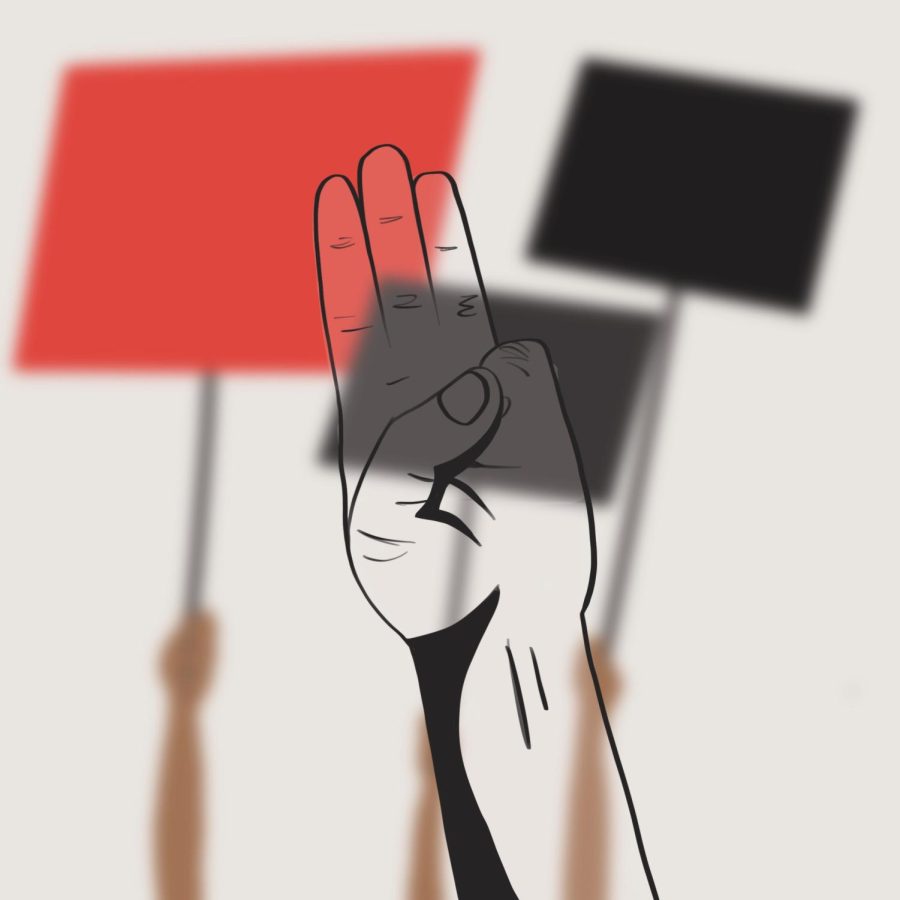Myanmar: The forgotten coup
March 28, 2023
Not many have heard of the country of Myanmar; however, you may know of Burma. This was the colonial name for Myanmar during British rule. Located in the region of Southeast Asia and Indochina, Myanmar is bordered by India and Bangladesh to the west, the Bay of Bengal to the southwest, China to the north and northeast, Laos to the east and Thailand to the southeast. Despite the country having a rich Buddhist history, beautiful architecture, delicious food and humble, respectful people, Myanmar has long suffered from political instability, corruption and factional violence. The income gap in the country is one of the widest in the entire world, as the military junta controls a large proportion of the economy.
On March 2, 1962, Myanmar experienced its first military coup. Until the year 2011, the government was under military control and ruled by a revolutionary council led by General Ne Win. Business, media, production and other aspects of society were immediately brought under government control. The country was ruled under a one-party system and became one of the world’s most impoverished countries. The military was quick to suppress any anti-junta protests. In the year 1990, the first free multi-party elections were held, and the Burmese diplomat, politician and author, Aung San Suu Kyi won. However, the junta refused to cede power. The first general election in twenty years took place in 2010. Aung San Suu Kyi, now a Nobel Peace Prize winner, was released from house arrest, as she was placed there by the junta, and general amnesties for political prisoners were granted. New labor laws were created, and censorship laws were laxer. Aung San Suu Kyi’s party, the National League for Democracy, won in a landslide victory in the 2012 elections. However, 25% of parliament seats were still under junta control.
In the 2020 election, Aung San Suu Kyi’s party again won in a landslide. However, the Union Solidarity and Development Party, regarded as a proxy for the military junta, urged for a new election after suffering a humiliating defeat. They argued that they discovered more than eight million inaccuracies in voter lists, and the military threatened to “take action” regarding the alleged fraud.
On the day that parliament was set to convene, Feb. 1, 2021, the military detained Aung San Suu Kyi, declared a state of emergency, closed all borders and took control of the government. Aung San Suu Kyi was once again placed under house arrest, along with other ruling members, and many party members in the ruling party were expelled from the capital. Martial law was extended throughout the country and many people lost their lives during protests or as innocent bystanders.
As of today, a civil war is in action in Myanmar. Anti-junta groups are fighting on the ground against the military dictatorship. The junta continues to blow up villages, attack and raid refugee camps, and mass murder civilians, including Buddhist monks. Of the five countries with the most refugees fleeing, Myanmar is in the top five, along with Syria, Venezuela, Ukraine and Afghanistan. The number of people fleeing Myanmar grows daily due to the military’s ongoing violence.
How can you help Myanmar? Here are some ways that you can directly contribute to the anti-junta revolutionaries:
- Donate to the People’s Soldiers at www.peoplesgoal.org.
- Donate to revolutionaries via Liberate Myanmar via PayPal: @libmm.
- Donate via Mutual Aid Myanmar at www.mutualaidmyanmar.org.
- Emergency fund for over 10,000 Karenni refugees.
- Donate to Rohingya people affected by fires in their camp.
You can find even more resources, such as donating to help persecuted ethnic minorities in Myanmar and ways to support humanitarian relief and independent media on https://linktr.ee/Fullbellies.
Sources to learn more about the situation in the country:
- https://www.mutualaidmyanmar.org/whats-happening
- Link to Google Drive for images and videos
- Independent media: Irrawaddy News
- Independent media: Myanmar Now
- Independent media: DVB
The revolution must prevail.










